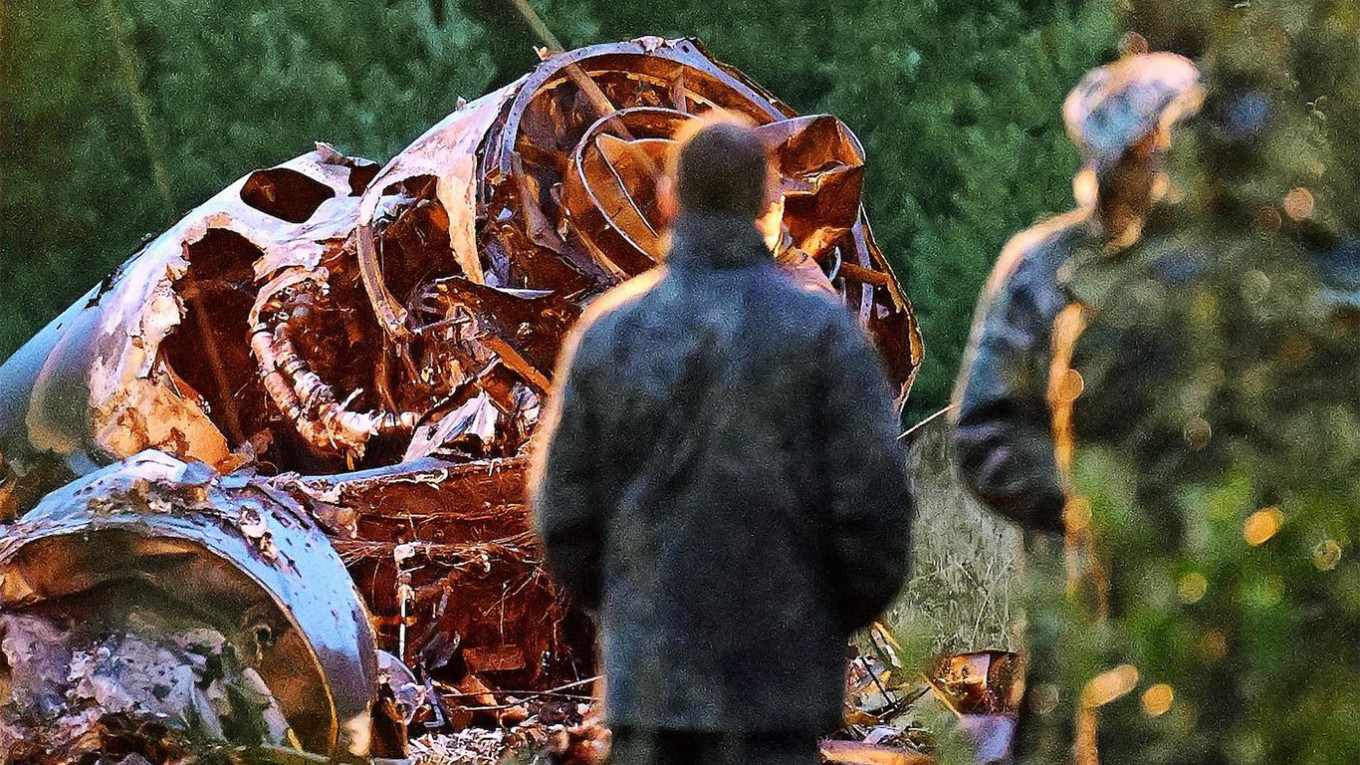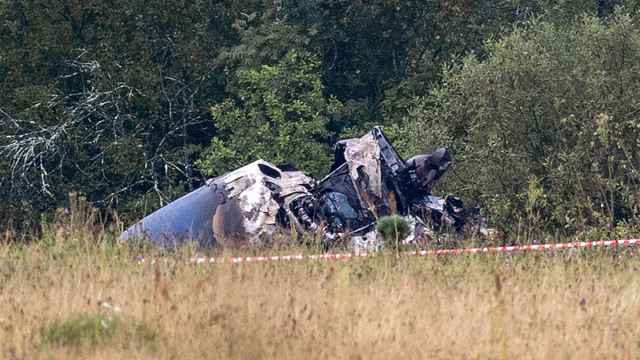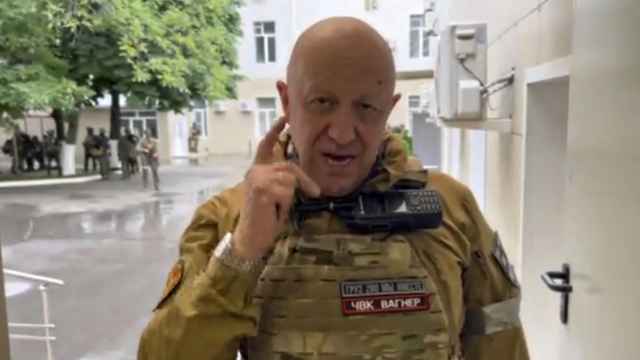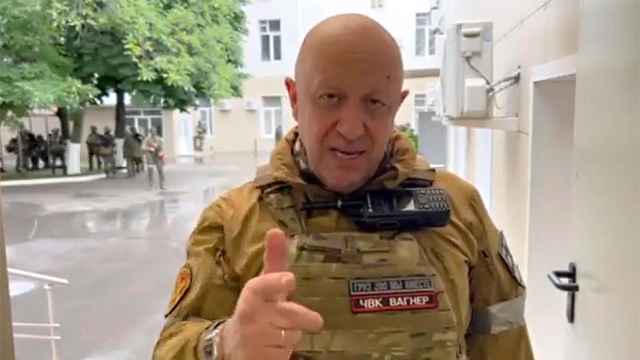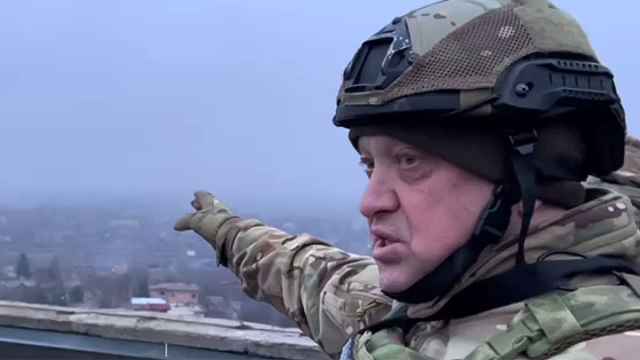The Kremlin said Wednesday that investigators were probing all possible scenarios surrounding the death last week of Wagner chief Yevgeny Prigozhin in a plane crash, including premeditated murder.
Prigozhin, 62, was buried on Tuesday in a private ceremony in his native St. Petersburg, more than two months after he staged a short-lived mutiny that posed a serious challenge to the Kremlin.
Authorities said the Western-sanctioned businessman died when his private jet went down along with nine other people between Moscow and St. Petersburg, and opened an investigation.
Kremlin spokesman Dmitry Peskov on Wednesday told reporters that officials probing the incident have not ruled out any cause for the crash including foul play.
"Obviously there are different versions, including the version — you know what we are talking about, let's say a deliberate crime — and so on," Peskov said.
He said the plane crash was being probed by Russia's Investigative Committee and that there would be no international input on the probe.
The Kremlin has dismissed suggestions that it orchestrated the crash in revenge for Wagner's march on Moscow in June. Officials are investigating possible air traffic violations but have not disclosed details.
Russians paid their respects to Prigozhin on Wednesday after law enforcement lifted a cordon around the cemetery following his funeral the previous day.
Aigul, a 38-year-old woman who declined to give her last name, said Prigozhin, who held the Hero of Russia title, Moscow's top honor, had defended his country.
"He was our protector," she told AFP at the cemetery.
"And who else was he if the president awarded him with medals?
"I didn't know him personally but I believe that president didn't make a mistake by decorating him."
Marina, 51, who also withheld her last name, praised the warlord as well.
"I respected him. I appreciated what he did. I loved his company which worked responsibly."
A Message from The Moscow Times:
Dear readers,
We are facing unprecedented challenges. Russia's Prosecutor General's Office has designated The Moscow Times as an "undesirable" organization, criminalizing our work and putting our staff at risk of prosecution. This follows our earlier unjust labeling as a "foreign agent."
These actions are direct attempts to silence independent journalism in Russia. The authorities claim our work "discredits the decisions of the Russian leadership." We see things differently: we strive to provide accurate, unbiased reporting on Russia.
We, the journalists of The Moscow Times, refuse to be silenced. But to continue our work, we need your help.
Your support, no matter how small, makes a world of difference. If you can, please support us monthly starting from just $2. It's quick to set up, and every contribution makes a significant impact.
By supporting The Moscow Times, you're defending open, independent journalism in the face of repression. Thank you for standing with us.
Remind me later.


